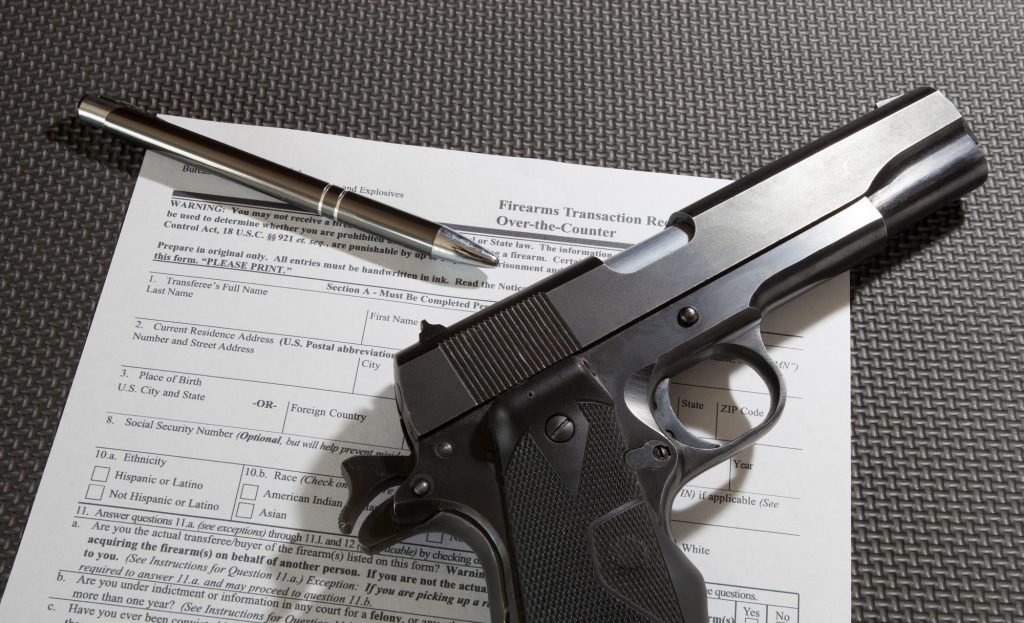Buying your first firearm is a big decision that should not be taken lightly. It’s not just about picking a gun from a shelf. You’re taking on a hefty responsibility, one that requires careful thought and consideration.
With safety, legal issues, and personal use at stake, it’s crucial to be well-informed before making this decision. Below are the key factors to weigh in to make sure you’re ready for this commitment:
Understand The Laws
Before exploring options from reliable providers like Bear Creek Arsenal, be sure to learn more about gun laws, which may vary widely from one state to another. You’ll need to familiarize yourself with the regulations in your area. This includes understanding background checks, waiting periods, and any necessary permits or licenses.
It may not be the most exciting part of the process, but it’s absolutely essential. Skipping this step could lead to legal consequences, so invest the necessary time to get it right.
Define Your Purpose
Understanding why you’re buying a firearm is crucial and influences more than just the type of gun you choose. Are you seeking protection, interested in hunting, or aiming to join a shooting club?
Each purpose guides the selection of the firearm that best suits your needs and affects the legal considerations and requirements you’ll face. For instance, those looking for a firearm for personal protection may need to consider additional permits for concealed carry.
Similarly, specific types of firearms may be restricted or recommended for hunting, depending on local wildlife regulations. Aligning your intentions with the right model and understanding the legal implications of its intended use are vital steps to prepare you for a smoother ownership experience.
Consider Your Budget
Firearms can range from relatively inexpensive to quite pricey. Setting a budget early on helps narrow down your options. However, remember that the cost of the firearm itself isn’t the only expense. You’ll need to budget for ammunition, safe storage, maintenance, and training, which can all add up. So, plan accordingly to avoid any financial surprises.
Prioritize Safety And Training
Owning a gun is a big responsibility that requires you to take safety seriously and learn the proper way to handle firearms. While taking a basic firearms safety course is an excellent start, look into additional training opportunities to expand your skills and knowledge.
There are specialized courses available that focus on different aspects of gun ownership and usage. For example, you can take a self-defense course to learn how to properly use a firearm for personal protection.
Or, if you’re interested in hunting, there are hunter safety courses that cover firearms handling as well as ethical hunting practices. If competitive shooting piques your interest, you can find training programs that help improve your accuracy and marksmanship.
These advanced courses don’t just cover how to shoot better. They also teach you essential details about properly storing and maintaining your firearms, as well as discussing the legal and ethical considerations around gun use.
By investing time into this extended training, you’ll gain a deeper, more well-rounded understanding of firearm safety and responsibilities. This preparation helps ensure you’re ready to handle a variety of situations involving guns.
Select The Right Firearm
With a clear understanding of the law, your purpose, budget, and safety training in mind, you’re on the right path to selecting your firearm. Doing your homework is crucial at this stage. Consider researching various brands, models, and their reviews. Then, pay close attention to factors like weight, size, and ease of use.
In addition, consider visiting a shooting range to test out a few options. During this hands-on experience, don’t hesitate to seek advice from range instructors or experienced shooters present. Their insights can be incredibly valuable, offering personalized guidance based on how you handle the firearm.
Storage And Maintenance
Before bringing a firearm home, have a plan for safe storage. A secure gun safe or lockbox is essential to prevent unauthorized access. Not only does this protect your household, but it also complies with safety regulations. Here are a few additional pointers:
- Humidity Control: Keeping your firearm in a controlled environment prevents rust and corrosion. Consider using dehumidifiers or silica gel packs in your storage area.
- Regular Cleaning: Firearms require regular cleaning to function properly. After use, take the time to clean and oil your gun according to the manufacturer’s instructions. It prevents buildup and wear.
Regular maintenance is crucial to keep your firearm in good working condition. Learn about the necessary upkeep tasks and ensure you have the right tools and supplies on hand. Keeping a maintenance log can help you track servicing tasks and ensure your firearm remains reliable over time.
Join A Community
Consider joining a local shooting club or online firearms community. Surrounding yourself with experienced gun owners can provide support, advice, and camaraderie. These groups often share insights on everything from the best local ranges to troubleshooting common issues.
Conclusion
Purchasing your first firearm often demands attention to detail, respect for the law, and a commitment to safety. By taking the time to consider each of these factors thoroughly, you can make an informed decision about gun ownership. However, remember that gun ownership is a lifelong commitment. With proper education, responsible storage, and ongoing practice, you can ensure your firearm remains a safe and useful tool.
